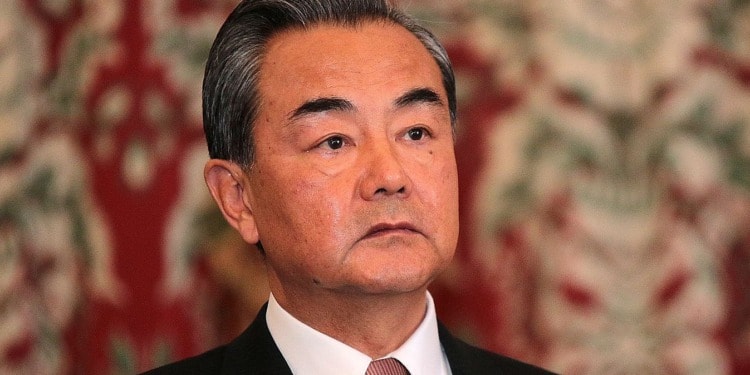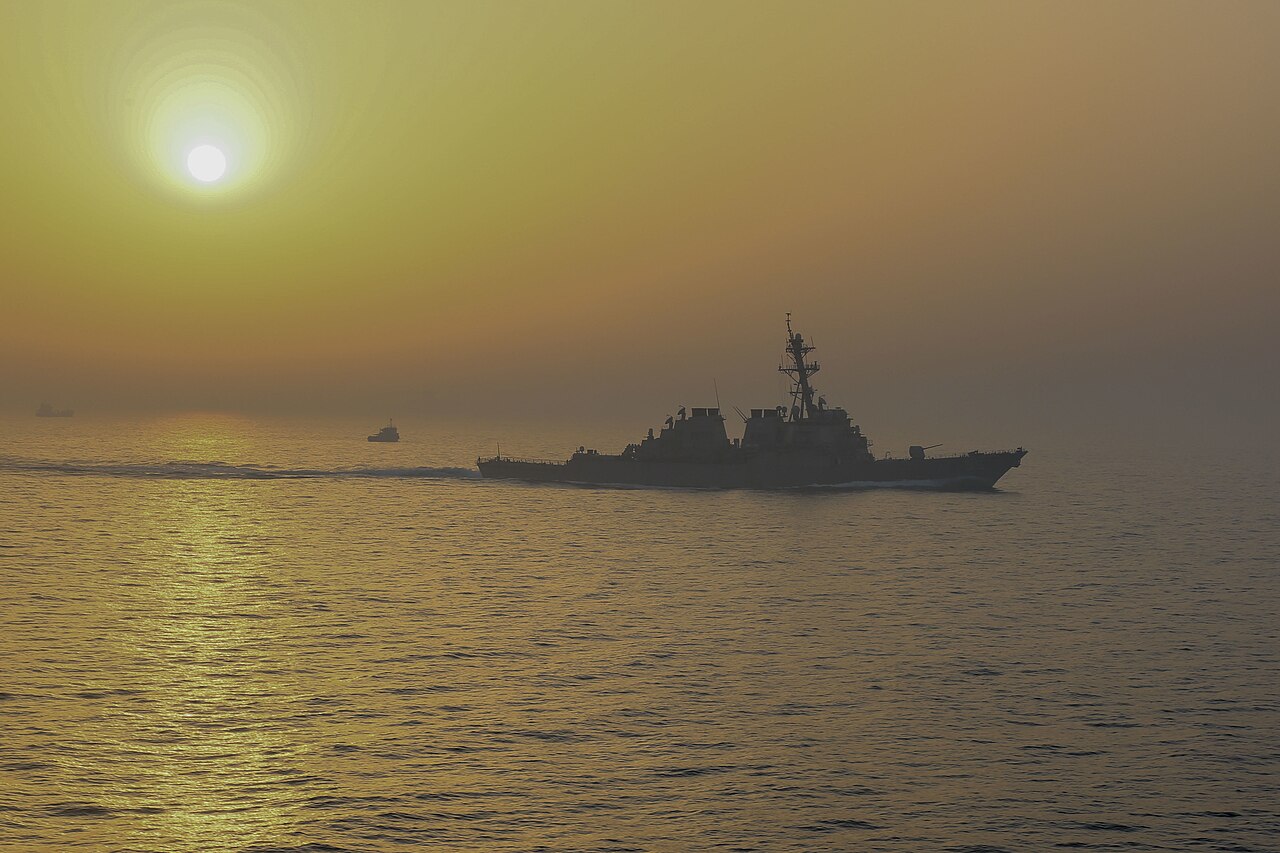On Monday, the foreign ministers of Samoa, Tonga, Kiribati, Papua New Guinea, Vanuatu, Solomon Islands, and Niue met with China’s Foreign Affairs Minister Wang Yi in Fiji (partly virtually due to ongoing COVID restrictions) to discuss a region-wide economic and security deal proposed by Beijing.
Some of the nations want to defer action on the draft communique or amend it, but the setback does not seem to have slowed China’s interest in the region.
Why did Wang Yi go on this tour?
Yi’s diplomatic tour stirred concern in Western governments as security experts say it represents a dramatic “uptick in tempo” for Beijing’s push for influence in the region.
Before Monday’s meeting, President Xi Jinping sent a message that China would be “a good brother” to the region with which it shares a “common destiny.”
China’s interest in the Pacific Islands is strategic. The US is still a regional hegemon in the Pacific area, but as an island chain between the US and China, Chinese control of the Pacific Islands could impact US influence across the enitre Indo Pacific, complicating the its military’s ability to operate in the region unchallenged and intervene if Beijing launched military operations against Taiwan.
Beijing’s interest in the Pacific regions thus relates to its efforts to diplomatically isolate Taiwan.
China also has ideological intentions. Increased Chinese influence in the Pacific Islands could erode their support for Western liberal democracies such as the US, Australia, and New Zealand. Beijing also hopes to increase its influence at the UN General Assembly, which discusses contentious issues such as Taiwan joining multilateral institutions.
The latest proposal from China comes weeks after it signed a controversial bilateral security deal with the Solomon Islands that would allow Chinese security forces to be deployed there if invited, opening the door to a Chinese military presence in the region.
This accord sent Western governments scrambling and prompted diplomatic visits from Australia, New Zealand and the US, who appealed to the Solomon Islands government not to sign the deal due to feeling threatened by China building a permanent military base in the Solomon Islands.
Asked about Beijing’s motives for involvement in the Pacific Islands, Wang Yi responded:
“Don’t be too anxious and don’t be too nervous, because the common development and prosperity of China and all the other developing countries would only mean great harmony, greater justice and greater progress of the whole world.”
The Outcome: Some islands are in favour, some are not
Leaked last week, Beijing’s proposed agreement involved training local police, marine mapping, more access to natural resources and political and cybersecurity involvement.
In return, China offered millions of dollars of financial assistance, humanitarian and COVID relief, and the prospect of a China-Pacific Islands free trade agreement, as well as a closer security relationship between them.
In the meeting discussing the proposal in Fiji on the 10th day of Wang Yi’s trip, Prime Minister of Fiji Frank Bainimarama told Wang:
“Your political point scoring means less than little to anyone whose community is slipping beneath the rising seas, whose job has been lost to a pandemic, or whose family is impacted by the rapid rise in the price of commodities.”
Although economic incentives may be attractive for the Pacific islands, the great risk faced from climate change and the pandemic is more urgent. Bainimarama also urged China to make stronger climate commitments on which they are currently slacking.
At a press event after Monday’s meeting, China’s ambassador to Fiji Zhang Ping said that while there had been “general support” for the agreement among foreign ministers, the deal was not signed after some Pacific countries voiced concerns.
Fiji’s President Frank Bainimarama also alluded to dissent from some nations, saying the group had a “consensus first” approach. Accordingly, a letter leaked last week from Federated States of Micronesia (FSM) president David Panuelo revealed that he would reject the communique because it “threatens regional stability.”
Panuelo called the proposal “the single most game-changing proposed agreement in the Pacific in any of our lifetimes”, adding that it “threatens to bring a new Cold War era at best, and a World War at worst.”
After the meeting, Wang told reporters that Beijing would release a position paper to shape consensus and cooperation, but that the nations had agreed on some areas of cooperation, including post-COVID economic recovery, agriculture, and disaster assistance, but not security.
Wang, however, did manage to get various lesser deals signed on his trip, such as trade, tourism and education agreements with Fiji over, and a bilateral agreement with Samoa’s prime minister, Fiame Naomi Mata’afa, regarding collaboration and infrastructural support.
A ‘diplomatic tussle’ on the horizon involving China, US and Australia
Analysts have widely seen Beijing’s intensifying engagement in the region as leading to a drawn out tussle for diplomatic influence, in which Pacific island states may gain from economic engagement but also suffer instability from China’s posturing. Although Wang Yi may not have secured this deal, his pacific vision is supposedly long-term and so further interventions are likely.
The high-profile nature of the visit is also a success to some extent. When Wang Yi’s trip began, the US Coast Guard entered the region, reflecting the US’ stake in the region. This follows Biden’s recent Indo-Pacific strategy (IPEF) announcement for greater US cooperation with twelve other Asian-Pacific nations – Japan, South Korea, Australia, Brunei, India, Indonesia, Malaysia, New Zealand, the Philippines, Singapore, Thailand, and Vietnam, but not Taiwan.
Following Trump’s removal of the US from the Trans-Pacific Partnership (TPP), Biden’s IPEF was meant to re-introduce an American influence in the region, focusing on the economic impacts of the pandemic and the Ukraine war. Consensus on the IPEF deal, however, has not yet been reached.
Meanwhile, the Australian Prime Minister Anthony Albanese has made the Pacific Islands an early foreign policy priority to counter Beijing’s push.
Australia’s new foreign minister Penny Wong was also in Fiji on Friday, reaffirming Australia’s commitment in the region and promoting its new emission targets as well as a new visa programme for Pacific Island citizens. On Monday evening, Wong stated:
“We want to help build a stronger Pacific family. Australia will always work with the Pacific family to address shared security challenges, which is why we will boost support for Pacific maritime security and increase defence cooperation. We want to bring new energy and more resources to the Pacific.”
Twitter interactions are telling:
Huge news — What a difference a change of government makes!
Ten #Pacific nations walk away from region-wide trade and security deal with #China as Australia resumes friendly relations with the Pacific.#auspol #dfat #asis #alp https://t.co/23aTWS4Sn1 via @ABCaustralia— Peter Cronau (@PeterCronau) May 30, 2022
Sincerest congratulations to @AlboMP Anthony Albanese from the Federated States of Micronesia! We look forward to strengthening our partnership together, from tackling Climate Change to promoting peace, unity, and liberty, and upholding the rules-based international order.
— David W. Panuelo (@9thPOTFSM) May 22, 2022
Great to speak with @FijiPM Frank Bainimarama tonight. Australia is committed to working with our Fiji #vuvale to tackle the climate crisis. Look forward to continuing our strong cooperation on the Pacific Islands Forum, COVID, security, labour mobility and more 🇦🇺🇫🇯
— Anthony Albanese (@AlboMP) May 30, 2022
In sum, Beijing’s engagement with the Pacific islands could destabilise the region and weaken civil liberties and democratic institutions. Beijing’s encroaching authoritarian presence in the region could have untold damaging impacts.
However, the experience Pacific nations already have in dealing with “big” powers should not be underestimated. As Robert Bohn Sikol, a former legislator in Vanuatu, told Al Jazeera on Monday, China’s success in the region is uncertain.
“The South Pacific countries know how to play the aid game. Chinese money will be accepted, but often the South Pacific countries do not stay bought!”, Sikol said. “It will take more than one visit to change minds.”
Greater cooperation with the newly elected forward thinking Australian government could also be positive news for the region.
Editor’s Note: The opinions expressed here by Impakter.com columnists are their own, not those of Impakter.com. — In the Featured Photo: Wang Yi, China’s Foreign Minister. Featured Photo Credit: Wikimedia Commons.









